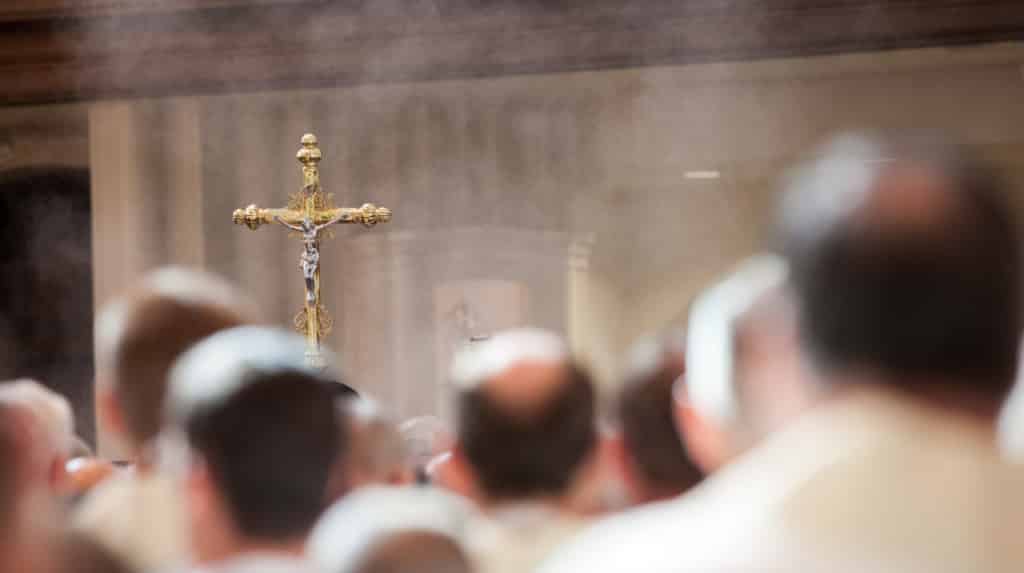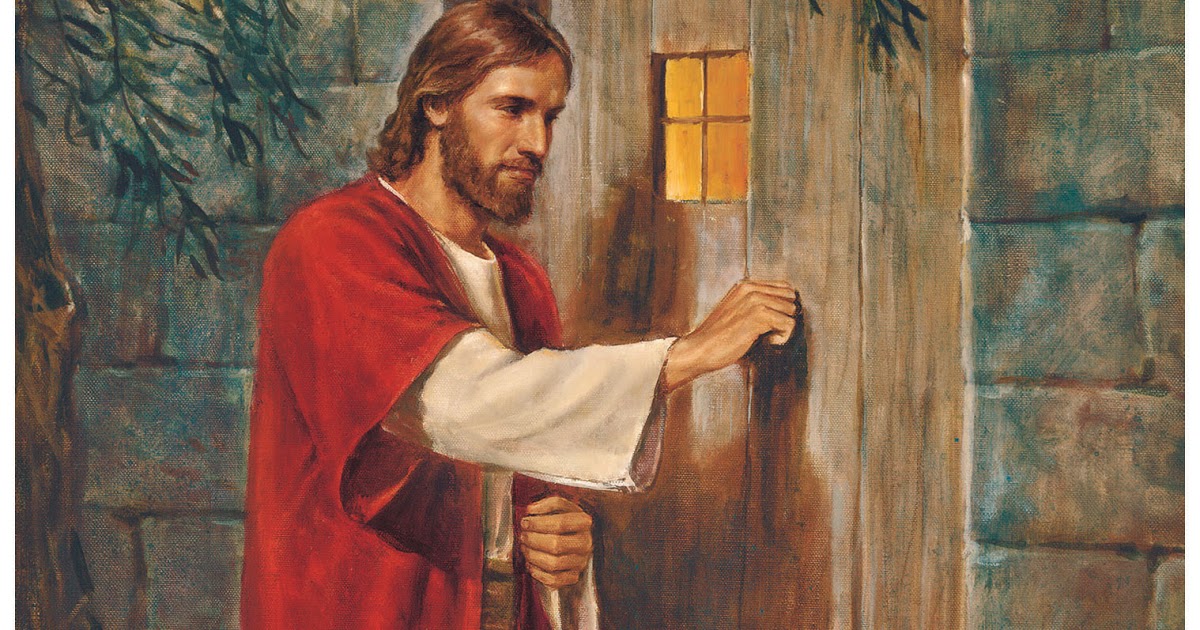Have you ever been to a funeral, and when it is time for the distribution of Communion, the priest announces that only Catholics may receive the Eucharist if they are in a state of grace or are Catholics in good standing? Now the priest is probably making an honest effort to avoid a sacrilege, but I always think to myself, “Does anyone here know what being in “state of grace” or being a “Catholic in good standing” really means? My gut feeling is that very few do.
So, in order to avoid misunderstanding, perhaps a priest should say the following: “Only Catholics who have no mortal sins on their souls may receive Communion. You will find a laminated card with a list of common mortal sins in the hymnal book rack in your pew. If you have committed any on the list and have not received absolution through confession to a priest, please do not add another mortal sin by coming forward to receive the Body and Blood of Christ unworthily.”
Did you cringe a little when you just read the above paragraph? Did you think, This is a hard saying; who can listen to it?
If that was your reaction, perhaps you would be more comfortable with this announcement: “In order to be properly disposed to receive Communion, participants should not be conscious of grave sin and normally should have fasted for one hour. A person who is conscious of grave sin is not to receive the Body and the Blood of the Lord without prior sacramental confession . . .’” (Guidelines for Receiving Communion, United States Conference of Catholic Bishops, 1996,)
In this second announcement, we still have two problems: First, there is no explanation of what constitutes a “grave” sin. Without that knowledge, a sacrilege is likely to occur. Second, there is no mention that receiving Communion unworthily is also a mortal sin. At least in the first announcement, a list of mortal sins and the warning of adding another mortal sin obviates these problems.
However, the reader may scoff and say, “No one is going to pay attention to that. How many people will sit there and let their friends or family know that hey have committed a mortal sin? Not going to happen.”
Actually, I’m inclined to side with the scoffers. Those who have a mortal sin on their soul will probably never reveal it by eschewing Communion.
Okay, let’s assume that would be the case. So, then, what happens? Probably a good number of people come forward and commit another mortal sin. Now that’s a bad thing, but that would have happened if the priest had said nothing.
Let us not forget the purpose of the Church. Is it not to bring souls to heaven? And does not mortal sin prevent that from happening? The Catechism of the Catholic Church states the dynamic directly:
Mortal sin . . . results in the loss of charity and the privation of sanctifying grace, that is, of the state of grace. If it is not redeemed by repentance and God’s forgiveness, it causes exclusion from God’s kingdom and the eternal death of hell . . .
Well, there it is. Pretty clear, right?.
Having a priest make a firm statement about the reception of Communion and mortal sin and providing a list of such sins could accomplish at least two important goods.
First, the attendees would be made aware of the importance of the Eucharist. Anyone who watches how most Catholics receive the host in their hands cannot help but see the disrespectful, slovenly approach they take. Their hands are held down by their waste and a large percentage of them never even say “Amen.” There simply is no reverence. But a focus on committing a sin while receiving the Body and Blood of Christ may awaken a new understanding.
Second, the priest’s admonition and the list of mortal sins could force some in attendance to take a hard look at the life they are living. Perhaps they will feel a need to confess their sins and come back to God. Some may take a card with them and share it with family or friends, which, in turn, may lead others to repent. Who knows the good that could come about?
And just in case there are readers who think a funeral Mass is not the proper venue for such an announcement, I would say it is the perfect venue. After all, there is a body in a coffin. Everyone in attendance is unavoidably aware of death and its harsh reality. At that very moment, there are only three options; the soul of the deceased is either in heaven or purgatory or hell. What an opportunity for a priest to help all present to avoid the last option.









These comments should be announced at EVERY Mass…
Excellent, as always!